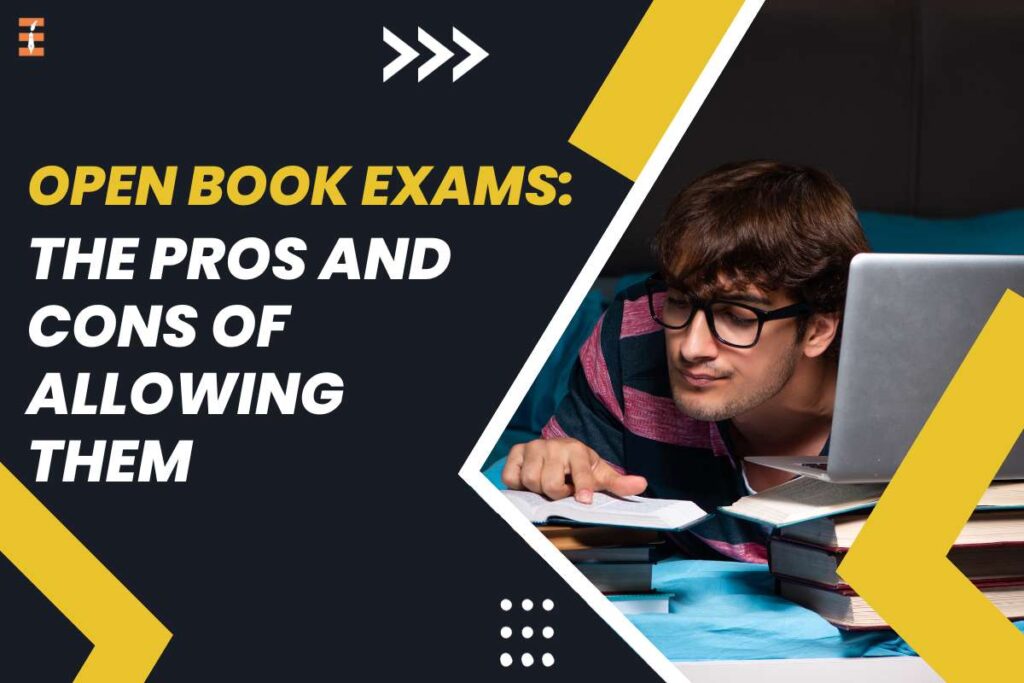Open book exams, often referred to as OBEs, have long been a subject of intense debate within the realm of education. The question of whether to permit such examinations or not has ignited impassioned discussions among educators, students, and concerned parents, generating a spectrum of viewpoints and considerations. These deliberations reflect the fundamental inquiry into the efficacy and fairness of open book assessments.
In the following article, we will embark on a comprehensive exploration of the merits and drawbacks associated with open book exams. We will explore the reasons underpinning the decisions made by educational institutions, shedding light on why some embrace the concept of open book testing while others remain steadfastly opposed.
Through a balanced examination of this educational conundrum, we aim to provide valuable insights into the ongoing discourse surrounding open book exams in modern education.
Now, let’s delve into the reasons why educational institutions may choose to allow or disallow open book exams.
Understanding the Concept of Open Book Exams
First and foremost, let’s clarify what OBEs actually are. An open book exam is a type of assessment where students are allowed to refer to their textbooks, notes, or other learning materials during the test. Unlike traditional closed book exams, which require students to rely solely on their memory and understanding of the subject matter, open book exams permit access to reference materials.

The reason behind open book exams is to assess a student’s ability to apply knowledge, think critically, and solve problems using available resources. While these exams may sound like a more relaxed approach to testing, they come with their own set of challenges and considerations.
Now, let’s explore the reasons why educational institutions may choose to allow or disallow open book exams.
Here are 4 pros and cons of allowing open book exams:
Pros of Allowing Open Book exams:
1. Encouraging Critical Thinking
One of the primary benefits of such exams is that they encourage critical thinking and problem-solving skills. When students have access to reference materials, they must analyze and apply information to solve complex problems. This promotes a deeper understanding of the subject matter.
2. Real-world preparedness
In the real world, professionals often have access to reference materials when making decisions or solving problems. Allowing open book exams can better prepare students for scenarios they may encounter in their future careers.
3. Reducing Stress
Closed-book exams can be stressful for students, leading to anxiety and memory lapses. Open book exams can help alleviate this stress, allowing students to focus on understanding and applying concepts rather than memorization.
4. Assessing the Application of Knowledge
OBEs allow students to apply knowledge, which is often more valuable than simply recalling facts. This approach aligns with the shift towards competency-based education.
Also Read: Advantages of Digital Learning Materials for Primary School Students
Cons of Allowing Open Book Exams:

1. Limited Time Management
In OBE, students may spend excessive time searching for information, leaving less time for actual problem-solving. This can hinder their ability to complete the exam within the allotted time frame.
2. Surface-level Learning
Some students may rely too heavily on reference materials, leading to surface-level learning rather than a deep understanding of the subject. They may become dependent on having resources readily available.
3. Risk of Cheating
OBEs can be more challenging to proctor, increasing the risk of cheating. Students might be tempted to use unauthorized materials or collaborate with others during the exam.
4. Difficulty in Creating Fair Assessments
Designing an OBE that effectively assesses a student’s understanding and problem-solving skills can be challenging. Ensuring fairness and preventing students from simply looking up all the answers is a complex task.
Why Some Educational Institutions Allow These Exams: (Promoting Critical Thinking)

Educational institutions that favor such exams believe that these assessments encourage critical thinking and the application of knowledge, which are valuable skills in real-world scenarios.
1. Reducing Stress
These exams are seen as a way to reduce stress among students. By allowing them to use reference materials, students can focus on problem-solving rather than memorization.
2. Alignment with Real-world Practices
Some institutions argue that such exams better align with real-world practices, where professionals have access to resources when making decisions.
3. Measuring Higher-order Skills
OBEs assess higher-order cognitive skills, such as analysis, synthesis, and evaluation, which are essential for complex problem-solving.
Why Some Educational Institutions Do Not Allow Open Book Exams
1. Risk of Cheating
Many institutions are concerned about the increased risk of cheating in OBEs, as it can be challenging to monitor students effectively during remote assessments.
2. Time Management Issues
Allowing books in exams can lead to time management problems, with students spending excessive time searching for information rather than answering questions.
3. Surface-level Learning
Some institutions argue that these exams promote surface-level learning, where students focus on finding answers rather than deeply understanding the subject matter.
4. Difficulty in Creating Fair Assessments
Designing an OBE that effectively assesses a student’s understanding and problem-solving skills can be challenging, making it difficult to create fair assessments.
Conclusion
OBEs have their advantages and disadvantages, leading to varying opinions among educational institutions. The decision to allow or disallow such exams ultimately depends on an institution’s educational philosophy, goals, and assessment strategies.
For some, OBEs are a way to promote critical thinking, reduce stress, and better prepare students for real-world scenarios. These institutions value the ability to apply knowledge and solve problems using available resources.
Conversely, others are concerned about the potential for cheating, time management issues, and surface-level learning associated with these exams. They find it challenging to design fair assessments that effectively measure a student’s understanding and problem-solving skills.
In the end, the debate over open book exams highlights the complexity of assessing student learning and the importance of considering various factors when determining the most appropriate assessment methods. Educational institutions must weigh the pros and cons of OBEs and align their assessment practices with their educational objectives and values.
Regardless of the approach taken, the goal remains the same: to ensure that students are equipped with the knowledge and skills they need to succeed in their academic and professional journeys.










